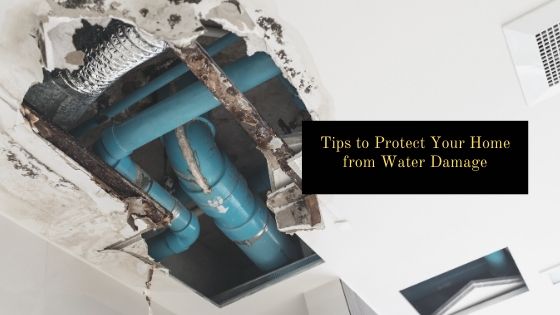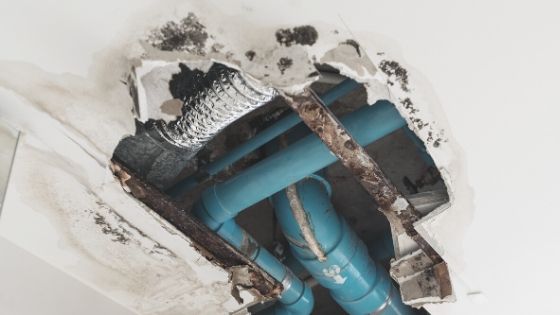
It may not sound as horrible or terrifying as, say, fire damage, but water damage is just as destructive. Water damage is, in fact, among the worst things that could happen to your home.
Believe it or not, even just a few inches of water in areas of your home where there isn’t supposed to be any can already cost you a lot of money. Fail to call a water damage restoration company right away, and that price tag is only going to get steeper. Water damage can weaken your home’s foundation, a nightmare scenario that every homeowner must do everything to avoid.
The good thing is you can actually do something to protect your home from water damage. Here are some tips that can help prevent water damage in your home.
Always check your plumbing system.
Many cases of water damage at home originate from broken pipes, especially ones that occur inside walls. Blocked drains and sewers can also overflow and flood your home in all kinds of filth, which can also cause health issues.
If you know a thing or two about plumbing, then make sure you check your pipes for leaks and your drains for any blockages regularly. If you want a more thorough check, you can always call a professional plumber to do it for you.

Inspect your water heater.
Water heaters can develop slow leaks over time, especially when there’s rust or corrosion. Inspecting your water heater at least once a year can help you stay on top of the situation. If you notice issues like slow leaks or small puddles of water on the floor, contact a professional immediately and have your water heater serviced to prevent it from bursting and causing water damage.
If you can switch to a tankless water heater system, then you can reduce the risk of water damage in your home significantly.
Clear your rain gutters.
Your rain gutters reroute all that rainwater away from your house. However, when they fill with debris over time, they will have a hard time doing their job. When that happens, you can expect rainwater to spill over the gutters and flow down your home’s siding and, eventually, to its foundation.
You can prevent that from happening by keeping your gutters free of leaves and all types of debris at all times.
Clear your property of snow and ice.
Don’t wait for spring melt to come before removing the snow and ice that have accumulated on your property during the winter. If you do, all the snow and ice gathered on the elevated areas of your property will melt and find their way towards your house, which can potentially cause water damage.
Take care of cracks in the foundation.
It’s bad enough for water to make it to your foundation. Cracks in it can only make it worse, as water will simply seep through them and make your foundation weaker. You can avoid that level of water damage by sealing those cracks using mortar and hydraulic cement.
Use trees and plants for flood control.
When heavy rains come, your home will have a better chance of fending off flooding if you plant trees and other types of greenery in and around your property. Trees make for great flood control as they soak up water and keep the soil in place. The same thing goes for some types of shrubs, ferns, and even wildflowers.
When planting trees, however, make sure you plant them at least 10 feet away from the structure of your house. Some trees have aggressive root systems that might wreak havoc on your home’s foundation in the future.
Shut the main water valve off when on vacation.
Unless someone’s taking care of your home while you’re on vacation or an extended business trip, don’t forget to shut off the main water valve. That way, there would be little to no risk of a pipe bursting and flooding your home while you’re away.
Seal your windows.
Windows are typically designed to keep rainwater away. However, older windows tend to leak, which is understandable considering the weather and temperature extremes they have been subjected to over the years.
If replacing your windows is not an option, then you can at least caulk and seal them periodically to prevent leaks during a torrential downpour.
Install water detectors.
More often than not, we fail to notice slow leaks or elevated moisture levels that typically warn of a major leak that can cause water damage. Thankfully, there are now water detection devices that you can buy and install near toilets, sump pumps, washing machines, and water heaters. These electronic devices have sensors that set off an alarm once they come into contact with moisture.
There are just some of the many ways you can avoid water damage at home. Follow some or all of these tips and spare yourself the trouble of dealing with water damage.
Thanks for visiting Preppers Survive. Before you leave subscribe to our newsletter. If you enjoyed this article, please share it on your favorite social media.



if you drain a few gallons a month off your water heater drain valve, you can see whats going on with it, as far as internal rust, lime build up, this will help you in the long run.
This is a great help for new homeowners!
Thanks for sharing this.